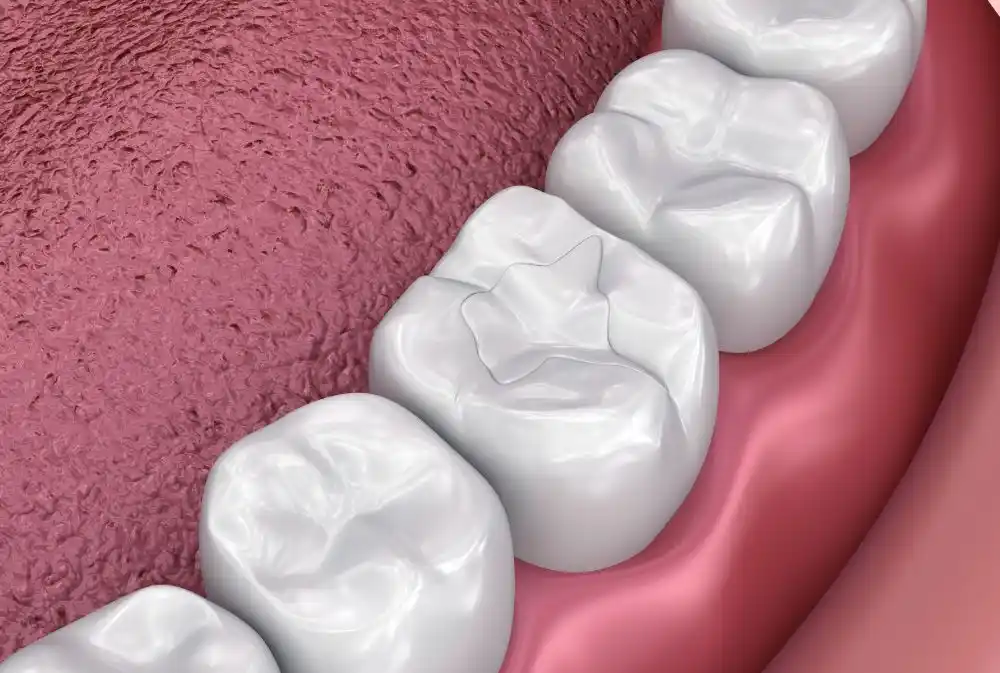Maintaining oral health is vital for a confident smile and overall well-being. Among the arsenal of preventive measures, dental sealants stand out as a powerful shield against tooth decay. Let’s explore the world of dental sealants, uncovering their importance, benefits, and application process. From protecting vulnerable teeth surfaces to saving on dental costs, sealants offer a proactive approach to dental care. Whether you’re a parent considering sealants for your child or an adult seeking extra protection, understanding the role of sealants is key to safeguarding your smile for the future.
What are Dental Sealants?
Dental sealants are thin coatings made of plastic materials that are applied to the chewing surfaces of teeth, particularly the molars and premolars. These sealants act as a barrier, protecting the enamel of the teeth from the harmful effects of plaque and bacteria. By sealing off the deep grooves and pits of the teeth, sealants help prevent food particles and bacteria from accumulating and causing decay.
Benefits of Dental Sealants
- Better Teeth Defense: Dental sealants act like armor for your teeth, creating a shield that helps prevent decay and cavities. They also give an added layer of protection against harmful acids and bacteria that can damage tooth enamel.
- Longevity and Durability: When properly applied and maintained, dental sealants can last for several years, providing ongoing protection for your teeth.
- Cost-Effectiveness: Sealants are a cost-effective preventive measure compared to the cost of treating cavities and other dental problems.
Who Should Get Sealants?
Dental sealants are typically recommended for children and teenagers, as they are more susceptible to tooth decay due to their developing oral hygiene habits and dietary choices. However, adults who are at high risk for cavities may also benefit from sealants. Dental professionals can assess individual risk factors and recommend sealants as part of a comprehensive preventive care plan.
Procedure for Applying Sealants
- Preparation of Teeth: The teeth are thoroughly cleaned and dried to ensure proper adhesion of the sealant material.
- Application Process: The sealant material is carefully painted onto the surfaces of the teeth, filling in the grooves and pits.
- Curing and Sealing: A special light is used to cure or harden the sealant material, creating a strong, protective barrier over the enamel.
- Duration of the Procedure: The entire process usually takes only a few minutes per tooth and is painless and non-invasive.
Maintenance and Care
Once you have sealants, it’s essential to maintain good oral hygiene habits:
- Brushing: Continue brushing your teeth twice daily with fluoride toothpaste.
- Flossing: Don’t forget to floss daily to remove plaque and food particles from between your teeth.
- Regular Check-ups: Visit your dentist regularly for check-ups to ensure your sealants are in good condition.
Comparisons with Other Preventive Measures
While sealants are highly effective, they’re most powerful when combined with other preventive measures:
- Fluoride Treatments: Fluoride helps strengthen tooth enamel, providing an extra layer of defense against decay.
- Good Oral Hygiene: Brushing, flossing, and using mouthwash daily are essential for maintaining oral health.
- Healthy Diet: Limit sugary snacks and drinks, as they can contribute to tooth decay.
Frequently Asked Questions (FAQs)
- Who can get dental sealants?
Dental sealants are suitable for people of all ages, but they’re most commonly recommended for children and teenagers.
- Do sealants require special care?
Sealants do not require any special care beyond regular oral hygiene practices. However, it’s important to attend regular dental check-ups to ensure the sealants remain intact.
- Are sealants covered by dental insurance?
Many dental insurance plans cover the cost of sealants for children, but coverage for adults varies.
- How long do sealants last?
With proper care and maintenance, sealants can last for several years. However, they may need to be reapplied or touched up over time.
Conclusion
In conclusion, dental sealants are an excellent investment in your oral health. By providing a protective barrier against decay, they can help keep your smile healthy and bright for years to come. If you want to learn more about sealants or schedule an appointment, don’t hesitate to visit us at Signature Smilez Family Dental. We’re here to help you achieve and maintain a beautiful, healthy smile!

